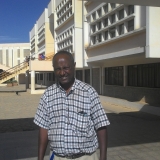Cities around the world generate substantial quantities of municipal solid waste, including organic residues. These organic residues can be managed productively and given value, or they can simply be wasted.
Municipal solid waste management is a serious environmental and public health concern in developing countries. In addition, collecting, transporting and disposing of municipal solid wastes presents formidable challenges to many developing country cities. It is believed that the problems are likely to become even more pronounced as the level and pace of urbanization continue to grow rapidly. Moreover, cost recovery is a serious problem of municipal solid waste management in many cities in the developing world. This paper considers how anaerobic digestion can give value to organic residues and help reduce the problem of municipal waste management. Biogas technology has the potential to work for the growing urban populations of Africa as both an energy source and a waste management (minimization) tool that can be utilized both at a small or large scale. In this paper we review the potential roles of biogas in urban applications. Specifically, we review organic waste treatment methods as well as opportunities and challenges for urban application of biogas installations and identify the critical conditions for success of biogas in urban applications.
Files and links
Request a publication
Due to Copyright we cannot publish this article but you are very welcome to request a copy from the author. Please just fill in the information beneath.
